Framing Change - From Scotland to Dubai
A photo exchange which helped me see nature in a new way
When I moved to Dubai a year ago, I set up an informal photo exchange with a good friend in Scotland. The rules and structures were fairly loose. We would take pictures of our lives and share them each week.
It was a way to stay in touch. It was a way to learn about each other. To see through each other’s eyes. It became a tool for witnessing the places we lived and our lives in them.
I liked that I could tell her subtle ways my life had changed, without needing to write long messages. I could share my discovery of this new place. And I could feel connected to the landscapes of Scotland, which I missed as much as my friends.
Our images ranged from abstract architecture, metros in motion and the street cats in Dubai: to crocuses, summer evenings and falling leaves in Edinburgh.
The messages became an exchange of our daily noticing of the world.
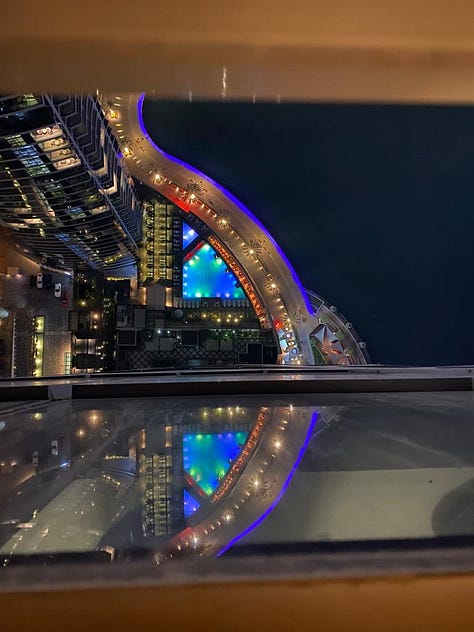
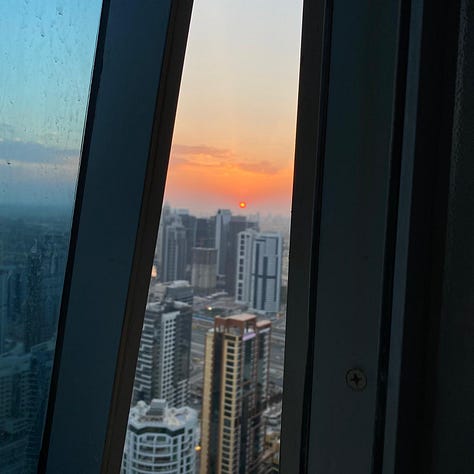




As the weather in Dubai was consistently hot (and then hotter), I would open my friend’s messages with surprise - realising the seasons had shifted at home.
Her close-up of flowers, captures of pink skies, and all of sudden, autumn leaves and first snow, helped me comprehend that time had passed. And watching that shift through the year, also helped me accept the transitions in my life. And to realise, with sadness, that things were moving on without me there to witness them.
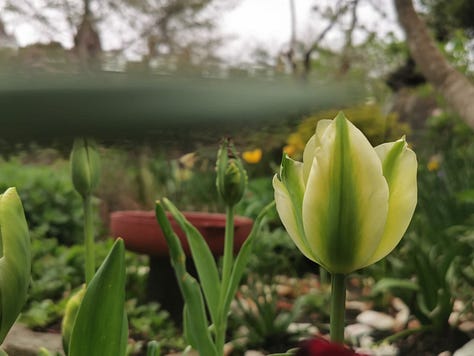

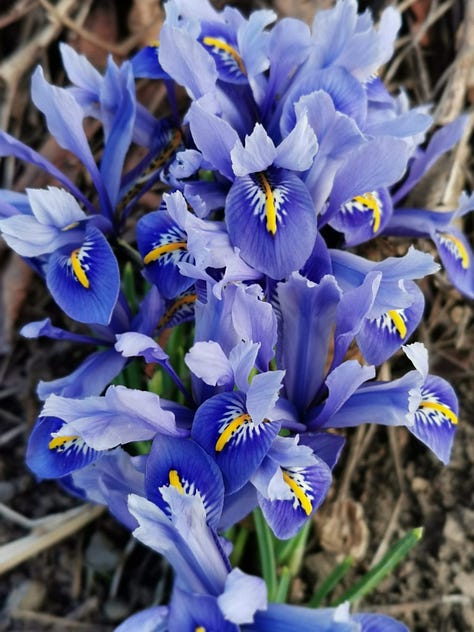



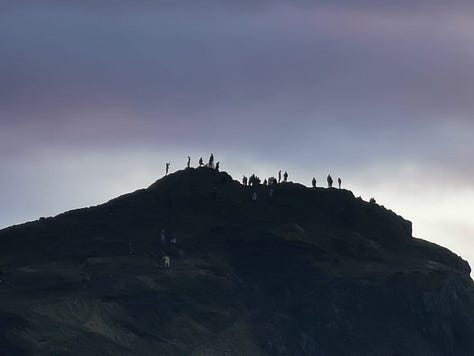

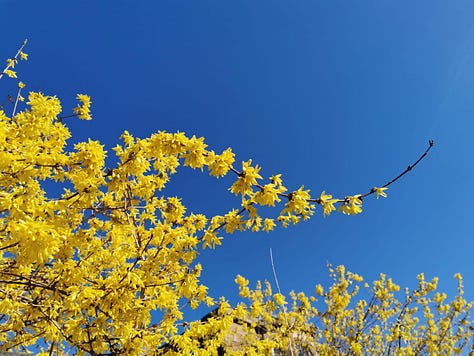
Living in a desert climate, without clear seasonal markers, my emotions stayed more constant and I often felt numb. I found it harder to feel, surrounded by concrete and blue skies, without a tree or a hill to keep me company.
Yet, the photo project moved my focus away from the grey and sandy colours of the desert, towards glimpses of colour and nature in the city. It helped me to pay attention to my new surroundings.
I still struggled to connect, but I did start to see the linear beauty of motorways or observe the way nature hides in corners of the city. To befriend the street cats - who seemed to move through the concrete structures, like they were trees in a forest - and unlike the silent commuters and Deliveroo drivers, always noticed I was there.
I captured birds nibbling crumbs at my feet, the shape of the ground from the perspective of high-rise windows, the sunset hitting the metro window, the occasional storms.
And to my delight, I once found a chicken about to cross a road, poised by a bus stop like she was transported from a joke book onto the edge of the motorway.


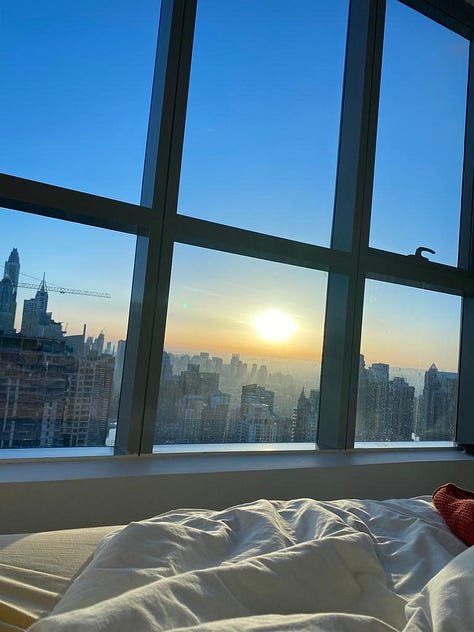


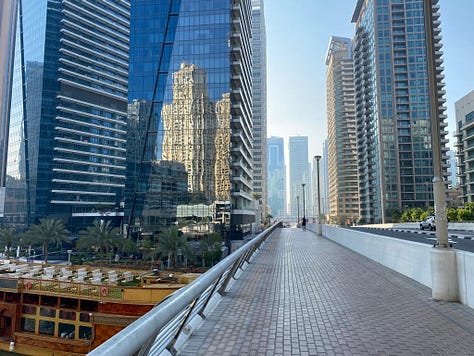

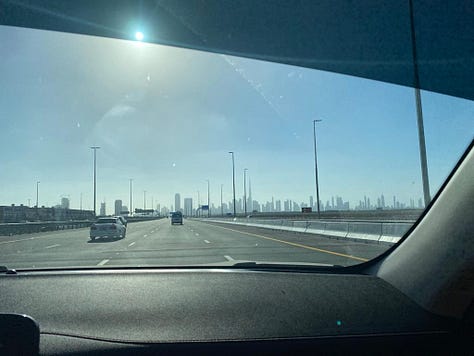
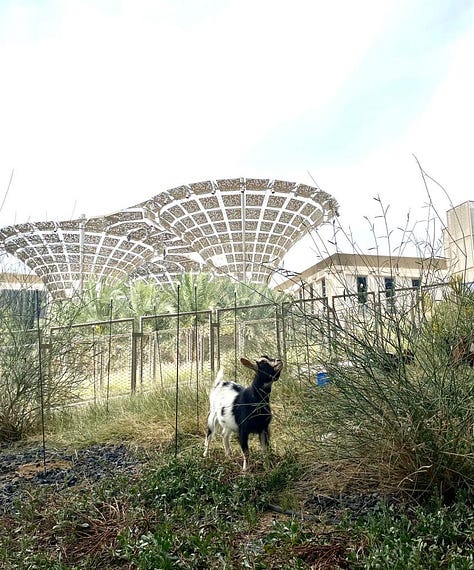
The fact I do not drive, in a city largely designed for driving, forced me to come in closer contact with both neighbourhood chickens and the soaring outside temperatures.
This made me realise what we often take for granted in Scotland. The surplus water, the wild green spaces - even in the city. And they are free - I kept telling my friends when I returned home - all this nature and water - we don’t pay for it.
Everyone in Scotland looked at me like I had gone a little crazy - but walking around a commercialised urban desert at 50 degrees centigrade gives you a much greater appreciation of heat, and equally, of our warming climate.
I saw how people had adapted to living indoors - power walking in malls or passing from garage to house to avoid the sun. I realised heat is part of our world, whether we like it is not. Just like the crocuses blooming on February roadsides in Edinburgh. They are both parts of the natural world we have inherited. Both are worthy of our attention.
The contrast between our images reminded me that finding a connection to nature - in whatever way that exists - is part of the fight against the climate crisis. Even if Dubai does not have the natural green beauty of Scotland.
In the words of Rebecca Solnit:
“Part of what we are fighting for is beauty, and this means giving your attention to beauty in the present. If you forget what you’re fighting for, you can become miserable, bitter and lost.
And if finding beauty in our natural world helps us to protect it, in many ways, that is even more essential in urban, sandy spaces, where people duck from car to office via underground parking spaces.
Nature needs our attention, not just in the natural parks and spring crocuses, but in the cracks between the concrete and sand. In listening to the street cats call, because they know, even in Dubai, there is the turn of the world, the hot and the cool of the pavements, the shift of the moon and the touch of the occasional drops of rain.
They know nature still holds us. Even in this strange forest, where the trees are so straight and tall, we cannot see to their top.

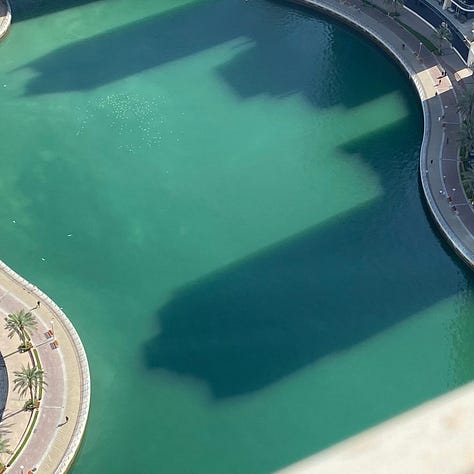

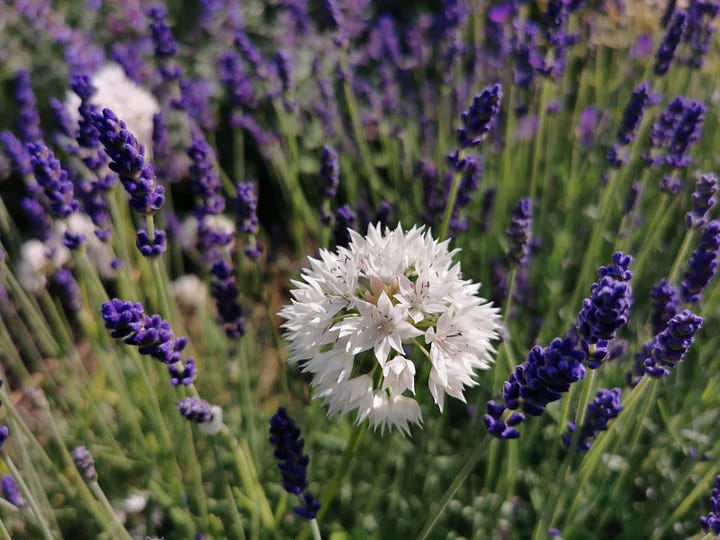
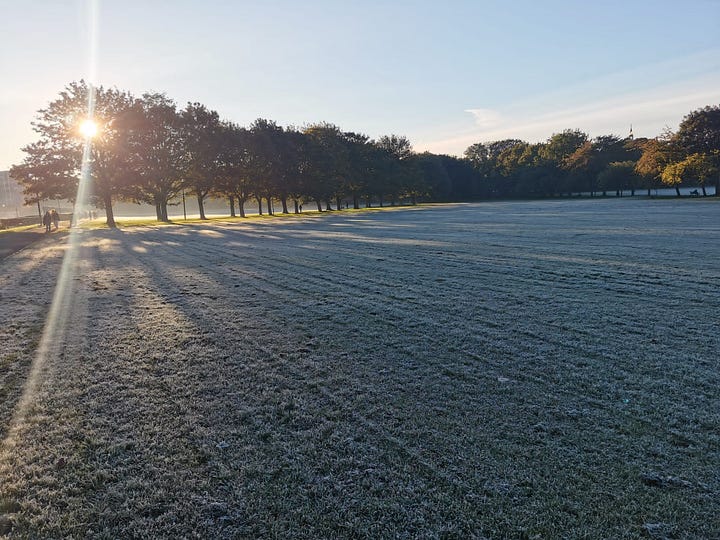
Thank you for reading Notes from Saving the World.
This is a place to share experiences that connect our personal stories to our collective stories. Our inner journeys to outer journeys and our transformations to bigger global change.
I write about the systems we live in through the lens of my personal and professional experiences of twenty years working in the aid sector.
I hope my stories might help connect your lived experiences to our global narrative. And ultimately - feel a bit less alone.





I love this idea of a photo exchange!
Dig it--nice piece.